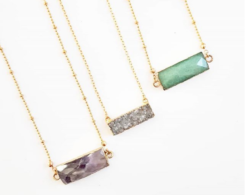Taking care of your infant’s baby teeth and gums set the stage for a healthy smile.
I had really bad teeth when I was a young kid. My mouth was too small to accommodate my full denture and it took me years of dentist visits and several procedures to get one of my most valuable face features: My smile.
Knowing that genetics could play against my daughter, I started to watch closely Mini’s teeth when she was a baby with two frontal tiny teeth, only available to see when she was smiling (or crying out loud, of course). At the age of 3, she had her first dental consultation and her first dental cleaning was at the age of 6 (she really didn’t like the experience, though).
Related: How bottled water affects your teeth
I am telling you this because I know first hand how hard it is to add dental care attention to our non-stop mom responsibilities, but I also know how things can get bad when the kids develop tooth decay and cavities. I made my research asking directly to some dental specialists, ending up with this list.
Here are five dental care musts that every parent should know, according with doctor Ali Khosrovani:
– Clean your infant’s gums. Use gauze to clean your baby’s gums after feedings and at bedtime. Ideally, this should be done even before your child’s first tooth erupts.
– Take your infant to the dentist. Schedule your child’s first dental visit by the age of 1 or after a first tooth erupts. You can decide to do it later in your child’s life, but do not wait to take them to their annual visit to the dentist after they are older than 3 years old.
– Brush your infant’s baby teeth. Once your child’s baby teeth erupt, brush them with a small soft-bristled toothbrush and a pea-sized amount of kid’s toothpaste after feedings and at bedtime. If you don’t feel comfortable with the possibility of your infant swallowing tooth paste, use only water to wash food residues from her teeth.
– Floss your infant’s baby teeth. When two baby teeth erupt side by side, gently floss them once a day (preferably before bedtime). Yes, it won’t probably be a walk in the park, but do your own floss in front of your toddler and tell him he can try it too. That way, this dental care tip will become part of their hygiene rituals.
– Wean your infant from the bottle. Ask your pediatrician or pediatric dentist about their tips for when breastfeeding stops being the only food your baby gets or when it is not the only way to have their liquid ingestion.

Watch out for:
Baby Bottle Tooth Decay — The health of your infant’s baby teeth is important to the healthy growth of their permanent teeth. To keep your infant’s teeth healthy and help prevent baby bottle tooth decay be sure to clean them after feedings, and avoid putting your baby to bed with formula or fruit juice (these contain tooth decay-causing sugars); use water instead.
Signs of Teething — Your baby’s first tooth can erupt, or «cut,» as early as three months and as late as a year. On average, babies experience their first tooth at about 7-months old. The symptoms of teething can vary greatly from child to child, but if your baby becomes increasingly irritable or starts drooling, biting and coughing more than normal he or she could be teething. Try giving your baby a teething ring or bottle of cold water for relief. If the symptoms don’t subside, ask your pediatrician about using Infants’ Tylenol® or Baby Orajel®.
Excessive Pacifier Use — Pacifiers are great for soothing your baby, helping your baby sleep and providing them with a harmless distraction. But if your infant uses a pacifier for more than three years, he or she may develop dental problems such as slanted teeth or a misaligned bite later on. If you have a difficult time weaning your baby from pacifier use, ask your dentist about alternative ways to give the comfort your child craves.








Facebook Comments